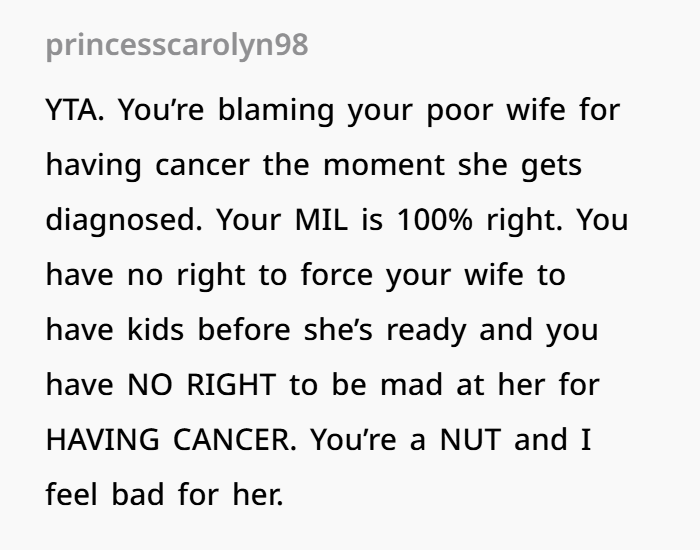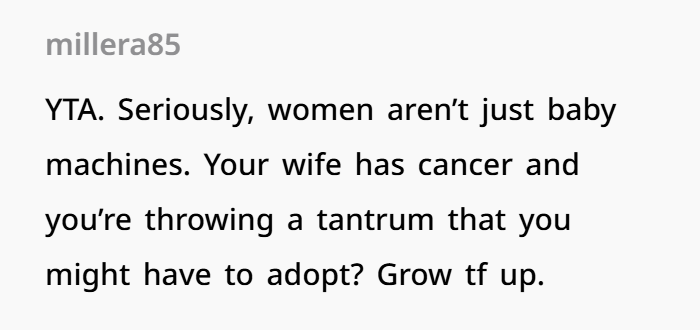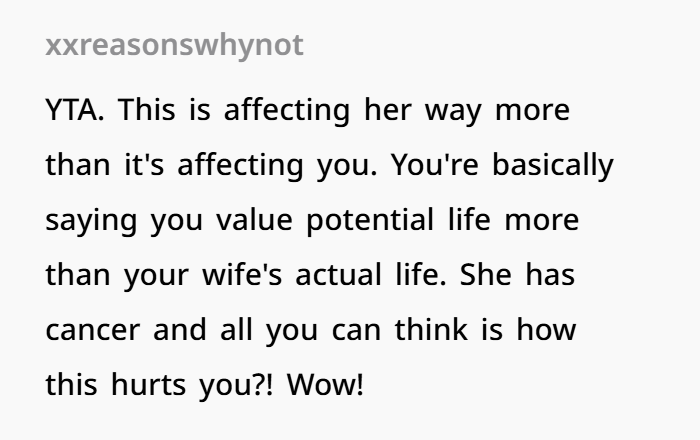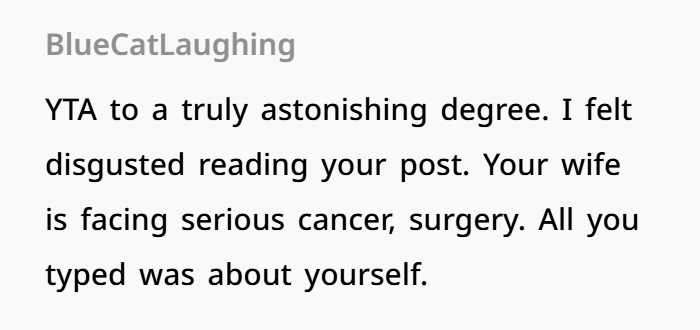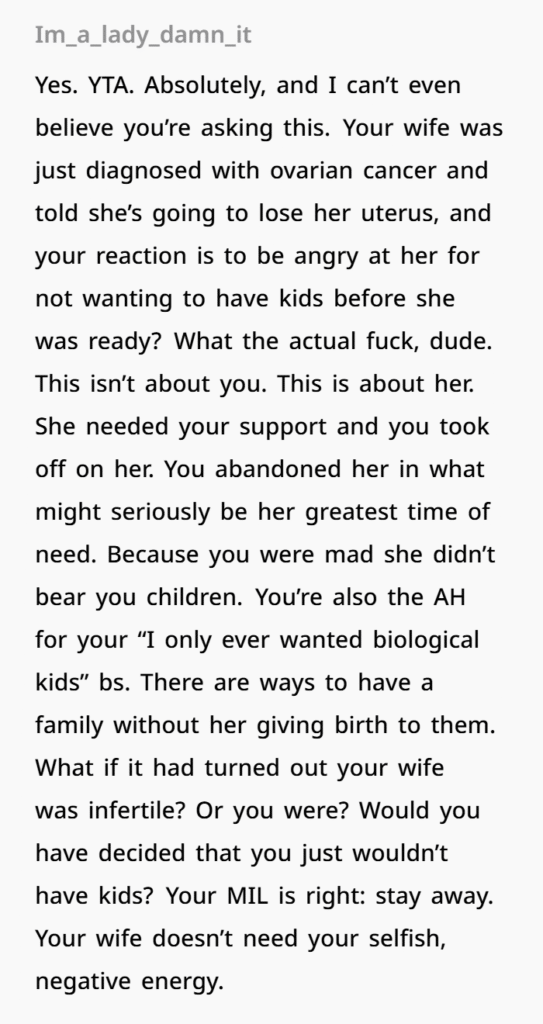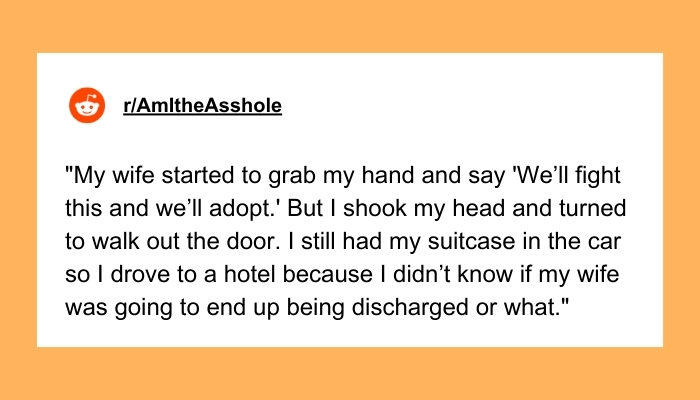Man Walks Out After Wife’s Cancer Diagnosis, MIL Tells Him To Stay Gone, He Wonders If He’s Wrong
Life has a strange way of surprising us. One minute, you’re drinking average coffee during a business trip, and the next, you’re racing home because your wife rushed to the emergency room (ER) with serious pelvic pain.
For today’s Original Poster (OP), what began as a scary hospital visit quickly turned into a life-changing moment. Doctors diagnosed his wife with ovarian cancer, a serious condition affecting many women around the world. After getting the heartbreaking news, OP had to leave his wife at the hospital while he processed the painful truth.
This emotional story reminds us how important it is to pay attention to early pelvic pain symptoms, seek help from emergency care services, and understand the need for fast ovarian cancer treatment. Early diagnosis can save lives, and access to the right cancer support services makes a huge difference.
Read for more info Reddit
There are moments in life when everything falls apart, and in those moments, the actions of the people we love most can make all the difference
The author was on a business trip when he was called to the hospital, where his wife was diagnosed with ovarian cancer
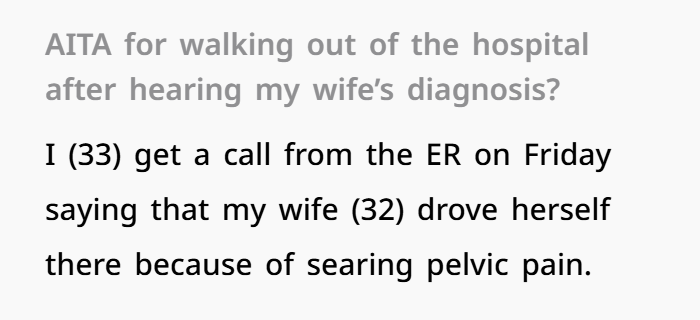
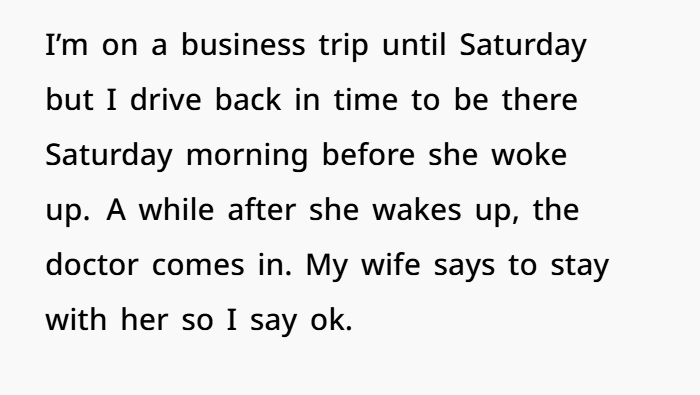
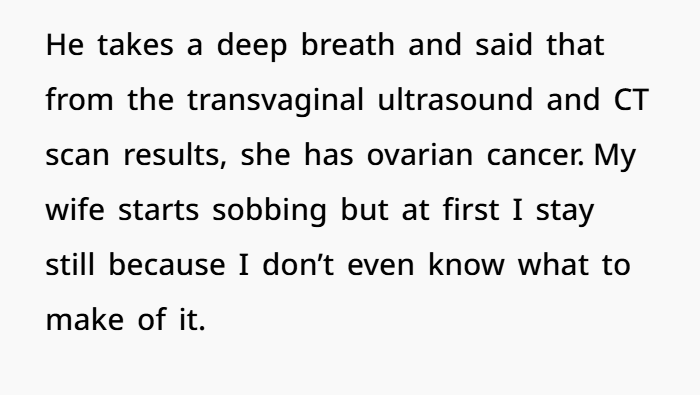
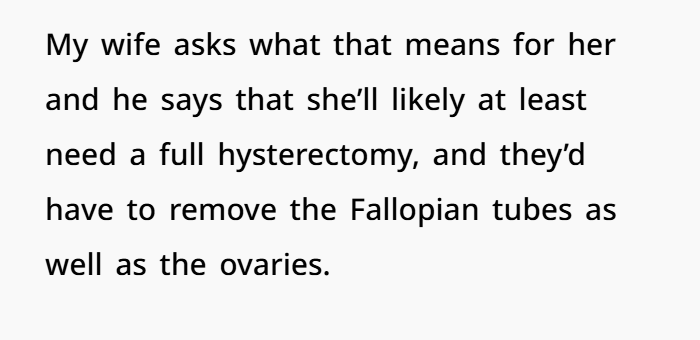
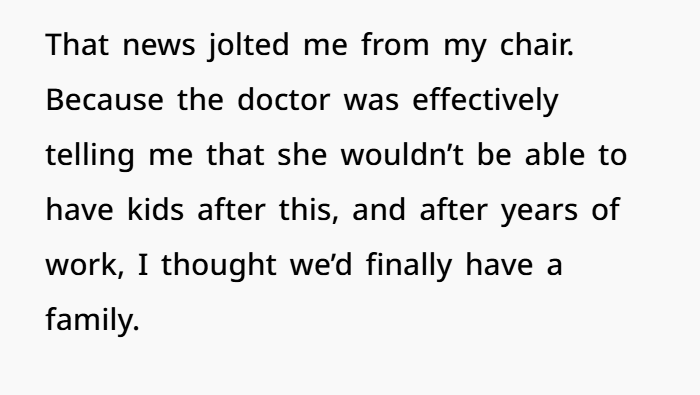
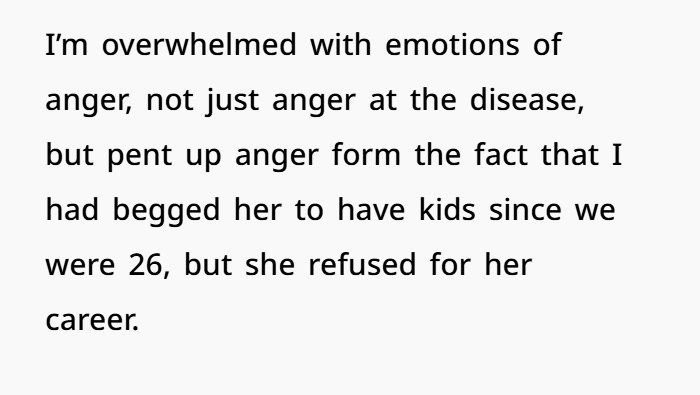
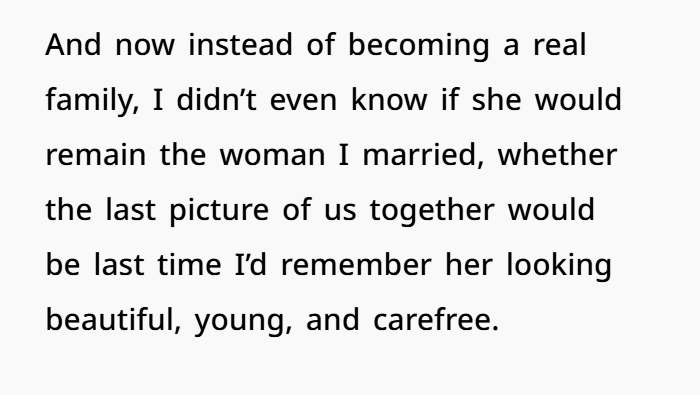
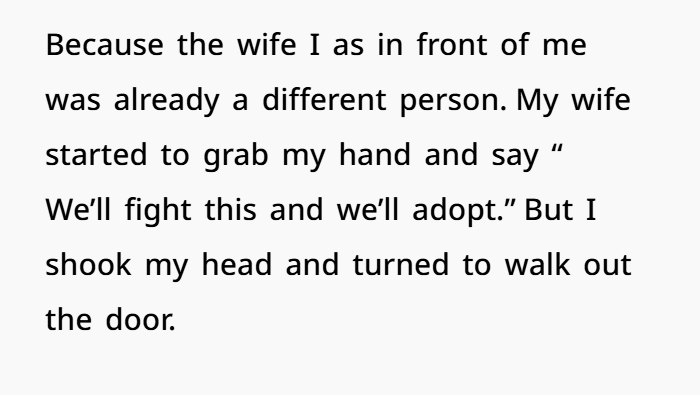
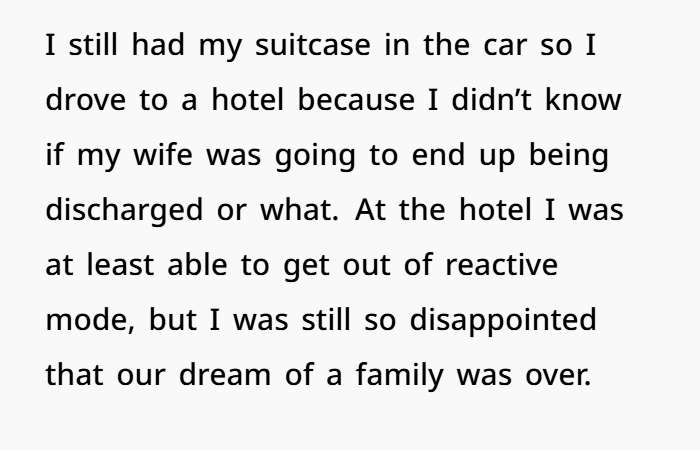
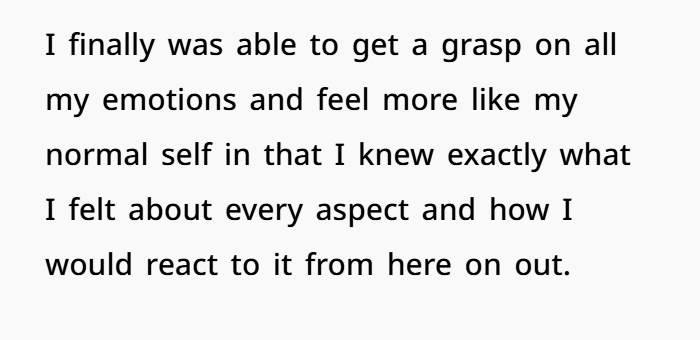
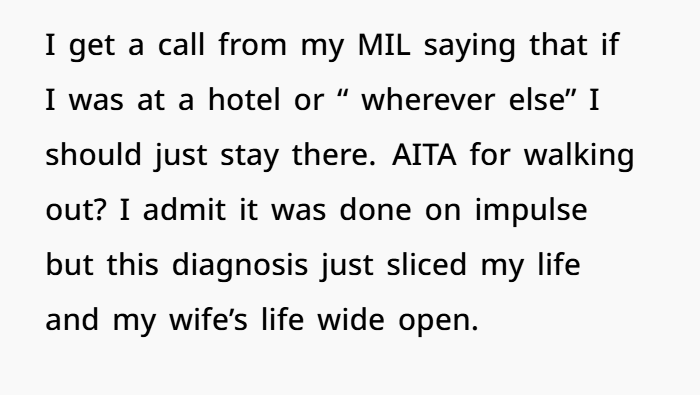
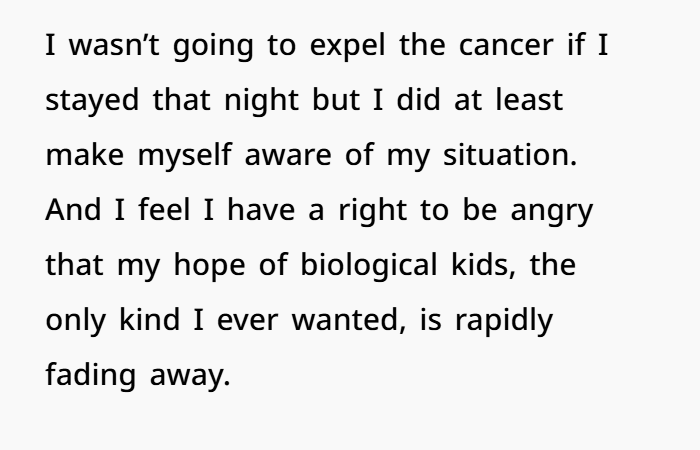
He eventually received a call from his mother-in-law telling him it would be best if he didn’t return to the hospital
It was supposed to be a regular Friday. But everything changed when the OP got a phone call—his wife was in the emergency room with intense pelvic pain. He rushed home from his business trip to support her. By the next morning, they were hit with devastating news: she had been diagnosed with ovarian cancer.
As his wife cried, trying to process the life-altering diagnosis, the OP was frozen—overcome with heartbreak, shock, and deep anger. His pain wasn’t just about the cancer. For years, he had asked his wife to start a family earlier. Now, he feared that the chance of natural fertility might be lost forever.
When his wife gently reached for his hand and brought up the idea of adoption, he couldn’t hold back. Overwhelmed by emotions, he packed his bag and left for a hotel. He didn’t even check if she would be staying overnight in the hospital.
Later, his mother-in-law called and suggested that he shouldn’t return to the hospital at all. Now, the OP is left wondering: was he wrong to react so strongly? Or was his emotional outburst a normal part of dealing with such a shocking diagnosis?
To better understand the medical side of this story, Bored Panda spoke with Dr. Sofia Robles, a gynecologist and reproductive health expert. She explained that while ovarian cancer in women under 35 is rare, it can still be serious.
“The severity of the cancer depends on its type and how early it’s caught,” Dr. Robles said. “Germ cell tumors, which are more common in younger women, usually respond well to treatment. But epithelial ovarian cancers, more typical in older women, can be aggressive and harder to detect early.”
This powerful story highlights the emotional toll of an unexpected cancer diagnosis, the struggles with fertility and family planning, and the importance of quick action when symptoms like pelvic pain appear. It also reminds us of the need for compassion, not just for the patient—but for loved ones processing the shock as well.
Dr. Sofia Robles, a gynecologist and reproductive health expert, explained that ovarian cancer treatment usually includes surgery and chemotherapy. If the cancer is caught early, there’s a much better chance of recovery. In some cases, doctors may consider fertility-preserving options, but this depends on the cancer’s stage and type.
Most often, especially in advanced cases, the recommended treatment is a full hysterectomy, which includes the removal of the uterus, ovaries, and fallopian tubes. “Ovarian cancer can spread quickly to the pelvis and abdomen,” said Dr. Robles. “Removing all reproductive organs helps ensure the cancer is completely removed and reduces the chance of it coming back.”
While this surgery is often life-saving, it can be emotionally and physically life-changing. It affects fertility, hormone levels, and overall health—making emotional support from loved ones more important than ever.
Dr. Robles shared helpful advice for partners supporting someone with cancer:
“It’s normal to feel overwhelmed,” she said. “But it’s vital to be emotionally present. Listen without judgment, offer practical help, and show you’re in this together.”
Simple actions—like driving to appointments, helping with meals, or just sitting quietly together—can go a long way in easing the stress of cancer treatment. She also stressed the importance of open communication and expressing emotions in a healthy way. Seeking counseling or joining a cancer caregiver support group can help both partners cope.
The Emotional Fallout: When Support Fails
Unfortunately, in this case, the OP struggled to manage his feelings. Netizens were deeply critical of his reaction—leaving his wife alone in the hospital after her ovarian cancer diagnosis, especially after she reached out for emotional comfort.
Many readers called him out for putting his own sadness about not having biological children above his wife’s life-threatening condition. Others were shocked at what they saw as a lack of empathy and accused him of treating his wife more like a means to an end than a life partner.
Netizens expressed their anger at the author and accused him of being selfish and viewing his wife as an incubator
